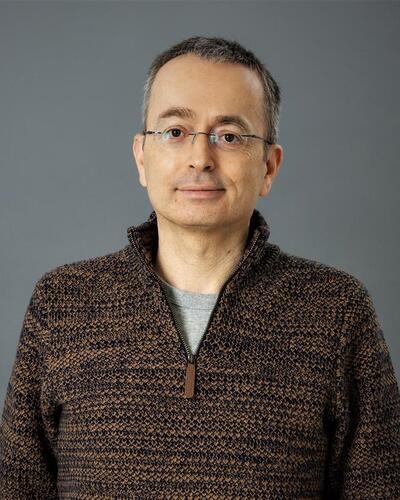Unveiling the Societal Impacts of Climate Change
What happens to societies when climate change erases their traditions? This is a compelling question driving Daniel Puig, a researcher at the Centre for Climate and Energy Transformation.

Main content
‘White Christmas’ in Norway, truffle gathering in Italy’s Piedmont region, flying fishes in Barbados, nomadic herding in Mongolia’s Altai mountains, a Shinto ritual on the frozen surface of Japan’s Lake Suwa, and Iceland’s Vatnajökull glacier. What do these have in common? They are cultural references slowly fading away, with climate change playing a central role in their decline.
Daniel Puig, postdoctoral researcher at the University of Bergen’s Centre for Climate and Energy Transformation, studies climate change-driven losses of intangible cultural heritage.
«Losing heritage is bad: in addition to helping maintain community cohesions, heritage is important in its own right because humans are cultural beings. We see this clearly among indigenous peoples, who suffer more acutely from its loss», Puig says.
Losses That Make Us Less Human
Adaptation is what we do to adjust to the impacts of climate change. However, adaptation has limits, driven by biophysical, economical, technological and social constraints. Daniel Puig is researching how social constraints influence our ability to adapt, and what consequences this has for intangible cultural heritage.
«Limits to climate change adaptation can be biophysical – like a flood barrier that is not high enough. Or economical – there simply is not enough money to build the flood barrier. But very often limits to adaptation are socially constructed: what this means is that individual values, social norms and psychosocial factors matter a lot when it comes to adaptation working or not», Puig says.
«Adaptation limits manifest through threats to what we care about most – from people, animals and plants, to objects, places, experiences, or opportunities that we deem indispensable to our physical and emotional wellbeing. Intangible cultural heritage, which involves traditional festivities and crafts, knowledge about nature, and language, is an example. It provides references that help us find our place in an increasingly complex and tough world», Puig says.
However, Puig believes that this instrumental function is not the main value of intangible cultural heritage.
«Without it, a part of what ‘being human’ involves is gone. This is why we care about it», he says.
Wellbeing
Before obtaining his PhD, Daniel Puig had a long career outside of academia. He now works at the Centre for Climate and Energy Transformation, an interdisciplinary research hub at the University of Bergen.
«I started working on climate policy very early in my career», Puig says.
This focus led him to pay increasing attention to the sorts of issues one studies in human geography.
«Very early on, my work on climate policy shifted toward social sciences, and gradually incorporated human geography perspectives, because of the importance this sorts of issues have in the effectiveness of policies», he says.
There is research showing that intangible cultural heritage contributes to wellbeing; the same research shows that the loss of intangible cultural heritage decreases people’s wellbeing.
Puig says that climate change is but one of many threats to cultural diversity.
«Globalization is also a big threat, along with conflict and poverty. Climate change makes the other threats worse. For example, when there is conflict and then a drought, the drought only worsens the consequences of the conflict. Climate is both a cause and an accelerator of all the other causes,» he says.
Climate Injustice
Asked about what drives him, Puig says:
«I suppose there is an activist in me. Climate change is essentially an externality: you incur costs with your emissions, and don’t pay for the consequences – but others do pay, because there is no such thing as a free lunch. This is profoundly unjust. It is bad enough when the injustice takes away your livelihood, but it is even worse when it also takes away your heritage, your identity. The activist in me is hugely upset about this».
However, Puig notes that climate change-driven losses of intangible cultural heritage hide a more subtle injustice. He describes a religious ceremony in Japan – a tradition that goes back centuries, and involves the frozen surface of a lake, except that, these days, the lake seldom freezes, and thus the tradition is likely to wane.
Because not everyone in the region feels strongly about the loss of this tradition, and those who do are neither the most influential nor the most vocal, its loss does not receive much recognition, and those who feel distressed about it don’t have anywhere to turn to.
This is unjust: «how many people does it take for the loss of heritage to matter, and who gets to decide about that?» Puig asks.
Consciously or not, culture mediates our every actions. As Daniel Puig puts it:
«When you lose your cultural references, you are inflicted a type of poverty that often is irreversible, which is why studying these issues is important».
